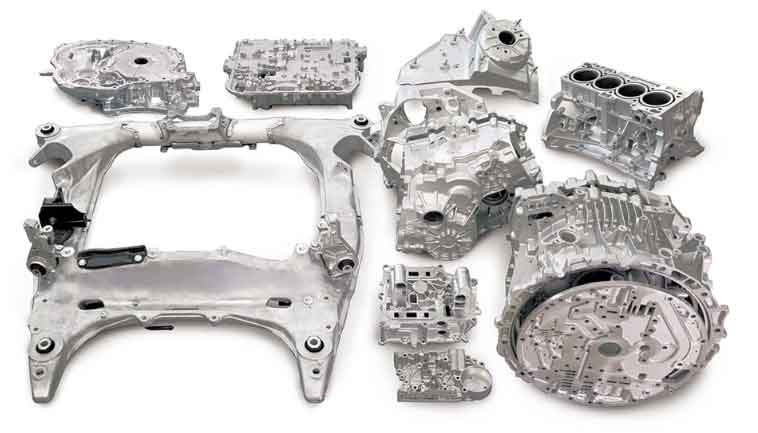Die casting plays a crucial role in aerospace applications, offering lightweight and strong components that meet the demanding requirements of the industry. Here are some key aspects highlighting the importance of die casting in aerospace:

- Weight Reduction: Weight reduction is a critical factor in aerospace design as it directly impacts fuel efficiency and overall aircraft performance. Die casting enables the production of lightweight components using aluminum, magnesium, and other lightweight alloys. These materials offer a high strength-to-weight ratio, allowing for weight savings without compromising structural integrity.
- Complex Geometries: Die casting enables the production of complex and intricate geometries that are often required in aerospace applications. The high precision and dimensional accuracy of die casting allow for the creation of intricate shapes, thin walls, and fine details, providing designers with greater freedom in component design.
- Strength and Structural Integrity: Die-cast aerospace components exhibit excellent mechanical properties, including high strength and rigidity. The die casting process ensures consistent and uniform material properties, resulting in components that can withstand the demanding operating conditions of the aerospace environment.
- Heat Dissipation: Aerospace applications often involve components that need to manage high temperatures and thermal loads. Die-cast components, particularly those made from aluminum alloys, have excellent heat transfer capabilities. This makes them suitable for heat dissipation applications such as heat sinks and engine components.
- Corrosion Resistance: Aerospace components are exposed to harsh environmental conditions, including moisture and corrosive agents. Die-cast materials, such as aluminum and magnesium alloys, offer good corrosion resistance, ensuring the longevity and reliability of components in aerospace applications.
- Design Flexibility: Die casting allows for design flexibility, facilitating the integration of multiple components into a single complex part. This consolidation reduces the number of individual parts, simplifies assembly, and minimizes the risk of assembly errors and failures.
- Cost Efficiency: While aerospace components must meet stringent quality and performance standards, cost efficiency remains an important consideration. Die casting offers cost-effective production for high-volume manufacturing due to its high production rates, reduced material wastage, and minimal post-casting processing requirements.
- Tight Tolerances and Quality Control: The aerospace industry demands high precision and tight tolerances to ensure the proper fit and functionality of components. Die casting is known for its ability to achieve precise dimensions and consistent part-to-part repeatability, meeting the stringent quality control requirements of the aerospace sector.
Die casting continues to play a vital role in aerospace manufacturing by providing lightweight, strong, and complex components that contribute to the overall performance, efficiency, and safety of aircraft. As the aerospace industry continues to evolve, die casting technologies, materials, and processes will continue to advance, enabling the production of even more sophisticated and efficient components for future aerospace applications.
